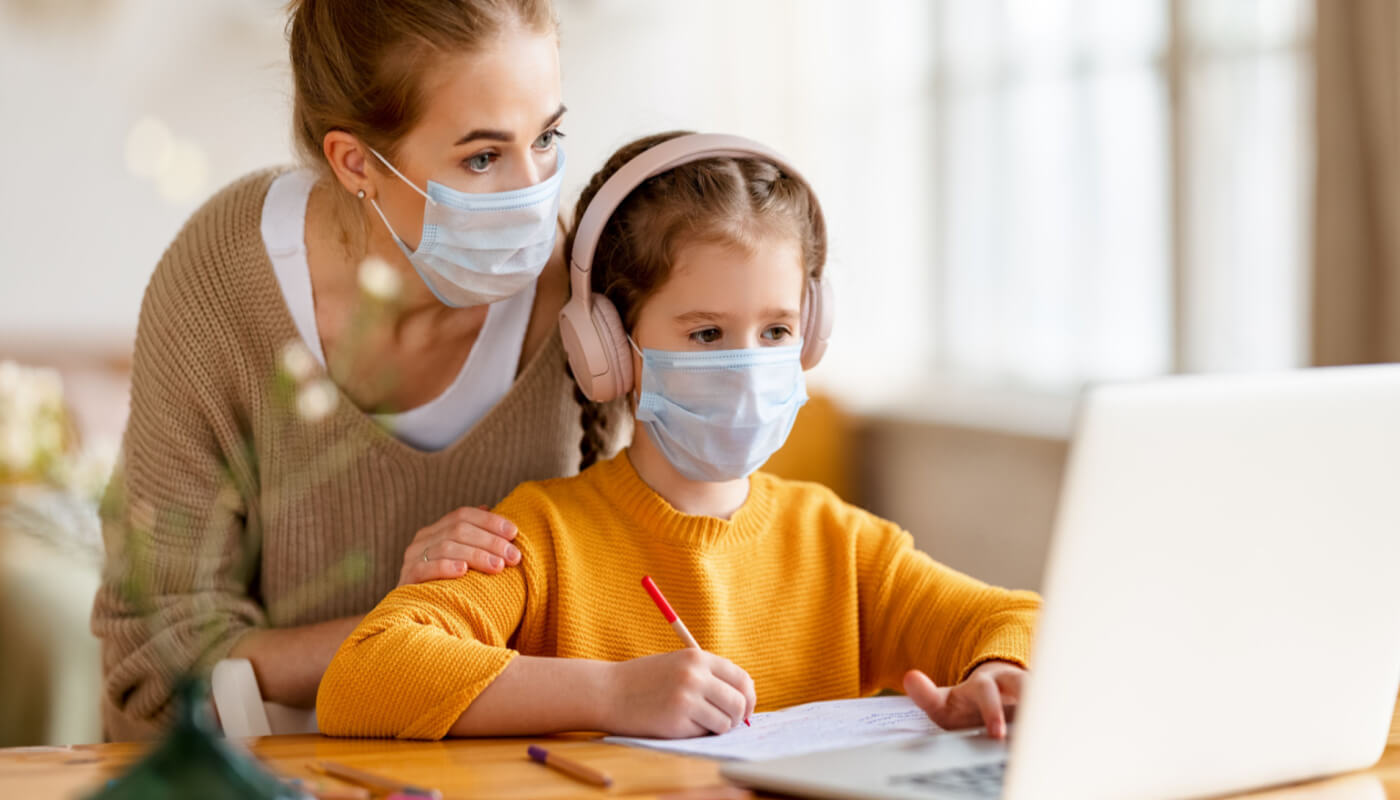The data is in, and the effects of lockdowns and isolation on children are concerning. Early childhood care is more important than ever for our young Australians.
Lincoln Bridge Tweet
We’ve moved on from the days of isolation and quarantines, and we’re seeing instead the holistic effect on children from the global lockdown.
During Australia’s lockdowns, many Early Childhood Education Centres (ECEC) were closed except for families of frontline workers. Many children didn’t have any interaction outside their home for weeks to months at a time.
These same children are now either in preschool or beginning primary school, and studies are showing an overall decline in basic life skills, an increase in stress and depression, and a reliance on devices.
In this blog:
Murdoch Children’s Research Institute’s report ’The impact of the COVID-19 pandemic on children in Australian early childhood education and care’ looked at the direct and indirect impact of lockdowns on children. The report not only highlights the gap in learning for affected children, but also the importance of ECEC on children’s social and emotional growth.
The study followed up over 380,000 children at three points during the pandemic. According to the surveys, after the first wave of lockdowns children were “most affected by changes to routines, missing important events and not seeing close family members or friends”.
In particular, three key areas were raised as a concern:
Behavioural impact
While ECEC is known for preparing children for school academically, it’s equally important for developing social skills and independence. Primary school teachers have observed many children are struggling with rudimentary skills like sharing, problem-solving, and cooperation with fellow students.
Primary school teacher Pauline George from St Peter Julian Eymard Primary School said in a report to the Herald Sun, “it’s taking longer to teach them these basic skills. We’ve lowered our expectations of these kids with increased ‘brain breaks’.”
Deakin University’s School of Education’s Professor Louise Paatsch said in the same report that research shows students are underequipped when it comes to interpreting other children’s behaviours, and basic socialisation.
With many children – particularly those in single-child households – being isolated from social situations during the formative years, educators play a vital role in improving socialisation and cooperation while the affected children are still young.
“What we need is to really look now at children’s interactions with their peers, how kids use language to enter a group, start a conversation, how they react when somebody greets them,” Prof Paatsch said.
Anxiety and stress
Overall, the surveys revealed a decline in mental health for many children during isolation. States and territories that experienced a second lockdown, such as Victoria and NSW, showed mental health difficulties had increased to ‘high’ for up to 47% of children, and ‘very high’ for 12%. The most common symptom was anxiety, followed by depression and attention-seeking behaviours.
It wasn’t just children who felt the rise in stress during the pandemic. With the closure of many Early Childhood Centres across the country), working parents found themselves juggling remote learning, at-home employment and the toll of isolation.
The ‘COVID-19 Pandemic Adjustment Survey’ (CPAS) showed parents suffered from higher levels of depression, anxiety and stress, higher irritability, higher rates of smoking and drinking, and higher couple conflict. There was also a lower positive atmosphere in the home and higher negative expressiveness.
These findings are troubling because positive parent-child attachment and interactions are vital for a child’s wellbeing in the first five years of life. The survey also showed a decrease in parents’ quality of life in day-to-day areas, including self-care.
Other countries’ have reported an increase in clinginess and separation anxiety for preschoolers. While more research is needed in the 0-5 age group, the initial findings are a cause for concern, the report says.
Screen time (lack of physical activity)
A study by Ricci in 2020 says preschool children need at least 180 minutes of active play a day. 60 minutes of that time should be moderate to vigorous-intensity activity.
However, with families isolated at home during the pandemic, screen time swelled while physical activity declined. Parents aren’t to blame either; remote learning had to be done from devices, children weren’t able to play outside, and parents were also juggling work-from-home jobs.
The Federal Government’s guidelines for screen time recommend a maximum of one hour per day for children aged under 5 – numbers that blew out over the last 2 years as our country locked down. According to a study by the University of Auckland, excessive screen time is most harmful when children use it in the ‘passive state’; ie, watching inertly rather than learning through interaction.
So, while not all screen time is ‘bad’ – it can also be a tool for learning and creativity – the hours children now spend on devices can drastically reduce their amount of daily physical activity.
Physical activity is vital for young children. It reduces stress, stimulates imaginative play, moderates mood and improves overall wellbeing. Too little physical activity raises stress levels, reduces creativity and can lead to weight gain.
With social skills in the 0-5 age group in decline, educating parents and children on screen time limits, and how to use devices appropriately for the age group is another role the ECEC can fill.
Selling A Childcare Centre
If you’d like to book an appraisal, you’re welcome to contact Lincoln directly on 0424 370 025, or Andrew Urquhart on 0408 439 762.
You can also register your interest as a seller for more information about the sale process, appraisals, and your profit potential.






